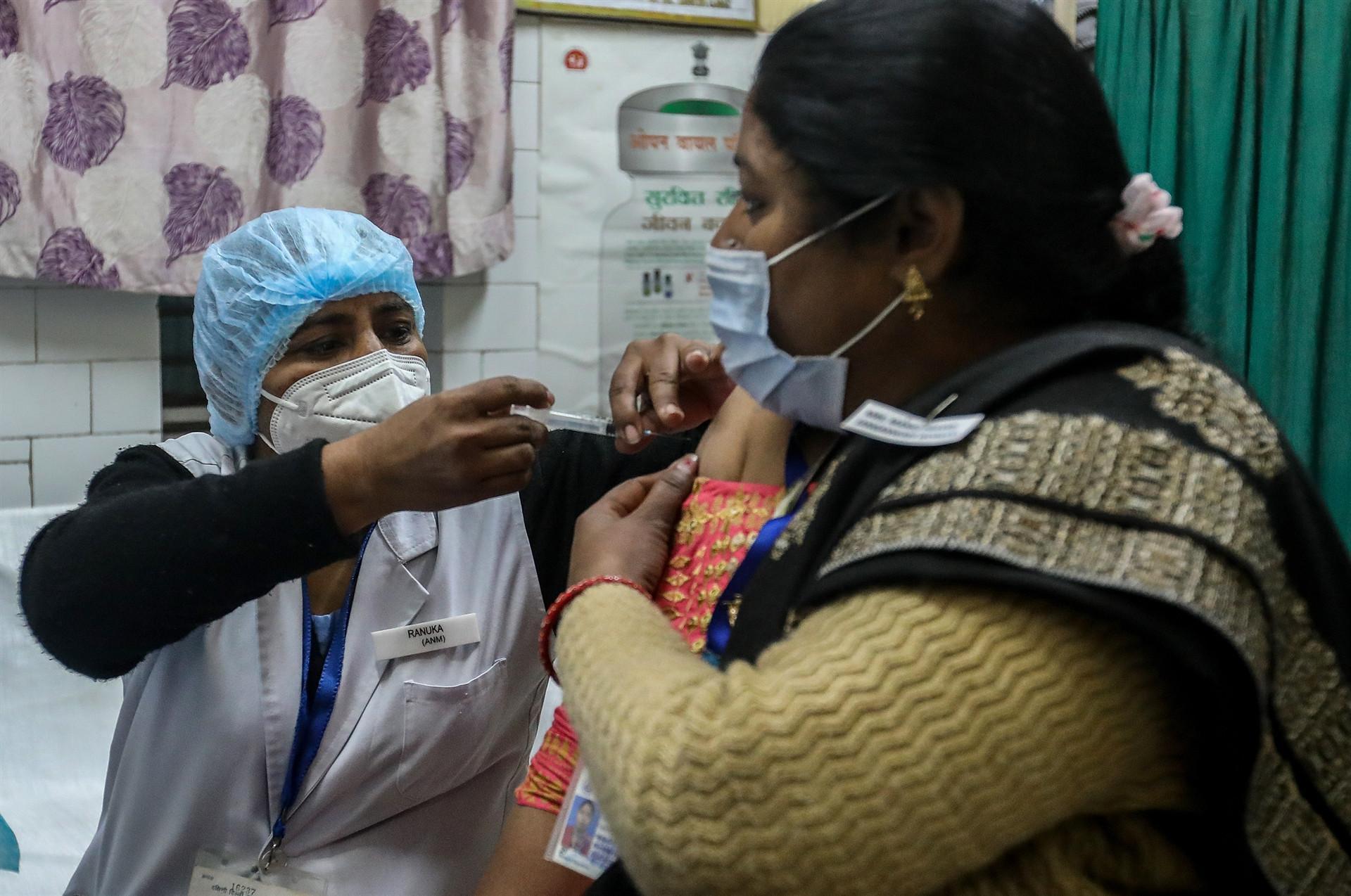
India authorized two COVID-19 vaccines on Jan. 3, paving the way for a huge inoculation program to stem the coronavirus pandemic in the world’s second most populous country.
India’s drugs regulator gave an emergency authorization for the vaccines developed by Oxford University and U.K.-based drugmaker AstraZeneca and another developed by the Indian company Bharat Biotech.
Drugs Controller General Dr. Venugopal G Somani said that both vaccines will be administered in two dosages.
Somani said the decision to approve the vaccines was taken after "careful examination" by the Central Drugs Standard Control Organization, India’s pharmaceutical regulator.
Prime Minister Narendra Modi called the vaccine approval a "decisive turning point to strengthen a spirited fight."
"Congratulations India," Modi tweeted.
The country’s initial immunization plan aims to vaccinate 300 million people, health care workers, front-line staff including police and those considered vulnerable due to their age or other diseases, by August 2021. For effective distribution, over 20,000 health workers have been trained so far to administer the vaccine, the Health Ministry said.
But this will be a challenge for India. Despite having one of the largest immunization programs, it isn’t geared around adults and vaccine coverage remains patchy. Neither vaccine requires the ultra-cold storage facilities that some others do. Instead they can be stored in refrigerators, making them more feasible for the country.
Although the world’s largest vaccine manufacturing company doesn’t have a written agreement with the Indian government, its Chief Executive Adar Poonawalla said at a virtual briefing on Monday that India would be "given priority" and would receive most of its stockpile of around 50 million doses.
The Serum Institute of India has been contracted by AstraZeneca to make a billion doses for developing nations, including India. On Wednesday, Britain became the first to approve the shot.
Partial results from studies for the Oxford-AstraZeneca shot in almost 24,000 people in Britain, Brazil and South Africa suggest that the vaccine is safe and about 70% effective. This isn’t as good as some other vaccine candidates, and there are also concerns about how well the vaccine will protect older people.
Researchers had also claimed that the vaccine protected against the virus in 62% of people who were given two doses and 90% in those who were given half a dose because of a manufacturing error. But the latter group included only 2,741 people, which is too small to be conclusive.
The other vaccine known as COVAXIN is developed by Bharat Biotech in collaboration with government agencies and is based on an inactivated form of the coronavirus. The company has completed only two of three trial phases. The third, which tests for efficacy, began in mid-November.
Early clinical studies showed that the vaccine doesn’t have any serious side effects and produces antibodies for COVID-19. With the second shot to be given 28 days after the first, and an immune response prompted two weeks later, it isn’t clear as to whether the company has provided data on the vaccine’s effectiveness.
Somani said "the vaccine has been found to be safe."
The Health Ministry said in a statement that permission was granted for Bharat Biotech’s shot for restricted use in "public interest as an abundant precaution in clinical trial mode, especially in the context of infection by mutant strains."
Dr. Gagandeep Kang at the Christian Medical College at Vellore said the idea that the vaccine could help against a mutant variant of the virus was "hypothetical."
India, with nearly 1.4 billion people, is the second-worst affected by the coronavirus after the U.S., with over 10.3 million confirmed cases and 149,435 deaths, though its rate of infection has come down significantly from a mid-September peak.
Indian regulators are still considering approvals for other vaccines, including one made by Pfizer.